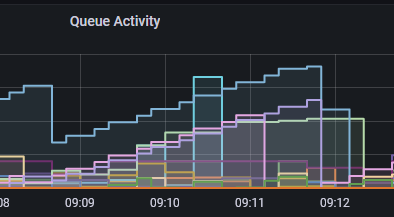A userid or group deleted from the operating system still shows up in a queue manager’s authority lists. Ideally you would have removed those authorisations before deleting the id, but if you have not, then MQ will not usually let you delete the authorisations later. This post explains the procedure that I use to remove MQ authorities for deleted ids or to cold-start the authorisations when testing. I’ll also describe a second procedure that you might prefer.
There are both use-at-own-risk methods, but I’ve given an outline a few times in posts and replies elsewhere. After a bit of encouragement, I finally decided it might be better to give fuller details so you can make a proper evaluation of whether to use the technique.
Continue reading “How to remove MQ authorities for deleted ids”This post was last updated on June 28th, 2022 at 04:25 pm




